national NODE -
norway
Photo credit: Johny Goerend/Unsplash
Introducing ECOP Norway
ECOP Norway is the Norwegian network contributing to the global initiative of Early Career Ocean Professionals (ECOP) Network Programme under the UN Decade of Ocean Science for Sustainable Development.
Norway has a deep and enduring connection with the ocean, which is integral to its cultural identity. The country’s rugged coastline, fjords, fisheries and maritime history have shaped Norwegian history and culture. Today, the ocean continues to play a crucial role in Norway’s economy. ECOP Norway aspires to a continuum of this ocean culture legacy through its members.
The governance structure of ECOP Norway is designed to be inclusive and participatory. It typically includes a steering committee composed of representatives from various sectors and regions within Norway and beyond. We aim to actively involve all members to ensure that the network meets the needs of early career ocean professionals. Established in February 2025, ECOP Norway aims to support early career ocean professionals by providing networking opportunities, professional development, and capacity-building activities with national and international partners.
Vision
Our vision is to anchor the foundations of a multidisciplinary cohort that connects the various stakeholders from academia, local authorities, industry and society to promote ocean sustainability for “The Ocean We Want”.
Mission
Our mission is to facilitate collaboration, knowledge exchange, and mentorship, helping to build a strong community of ocean advocates and experts. ECOP Norway aims to promote events, workshops, and training sessions tailored to the needs of its members, with the members to boost cross-sectoral cooperation in close association with the Norwegian National Decade Committee.
Objectives of ECOP Norway
To achieve our mission, we have set out the following objectives:
- Networking and knowledge sharing: Creating opportunities for networking and knowledge exchange through various platforms and events to shape the next generation of Ocean Leaders
- Facilitating collaboration: Supporting interaction among ocean industries by bringing together businesses, academia, governance, and civil society. We aim to create spaces for trust-building dialogue and inclusive processes that foster coexistence and the sustainable use of ocean space.
- Needs assessment: Identifying the specific needs, priorities, and challenges of Norwegian ECOPs and actively working to address them.
- Membership growth: Expanding our membership base by engaging diverse early career ocean professionals and strengthening partnerships with key stakeholders across Norway.
Leader of scientific and environmental programs
Activities of ECOP Norway
ECOP Norway is committed to fostering collaboration and advancing efforts aligned with the UN Ocean Decade. Our goal is to engage with established working groups, host ECOP meetings, and facilitate meaningful knowledge exchange.
We aim to bridge gaps and promote the transfer of knowledge across institutions, organisations, and the public and private sectors. By offering a combination of online and in-person activities, we strive to ensure accessibility and inclusivity for all participants.
A key objective of our initiatives is to establish a robust network of ECOPs who actively contribute their expertise to Ocean Decade actions, programs, and organisations. We are dedicated to supporting ECOPs in their roles, ensuring meaningful engagement, fostering intergenerational exchange, and equipping the ocean leaders of tomorrow.
Our current schedule reflects a strong foundation for networking and collaboration. Following ECOP Norway’s official launch, we aim to expand our activities to include a wider range of events, workshops, and collaborations in additional locations, ensuring greater opportunities for engagement and involvement across the country and beyond.
Upcoming networking opportunities
| Date (year 2025) | Event | Location |
|---|---|---|
| 26–27 March | High North Dialogue | Bodø |
| 5–11 April | One Ocean Week | Bergen |
| 2-5 June | Fjords in a changing climate | Stalheim |
| 3-6 June | One Ocean Science Congress | Nice, France |
| 4–5 June | Blått kompass | Tromsø |
| 9-13 June | UN Ocean Conference | Nice, France |
| 6-9 July | 58th European Marine Biology Symposium | Bodø |
| 11-15 August | Arendalsuka | Arendal |
Join us on LinkedIn
ECOP Norway Steering Committee
ECOP Norway Coordinators
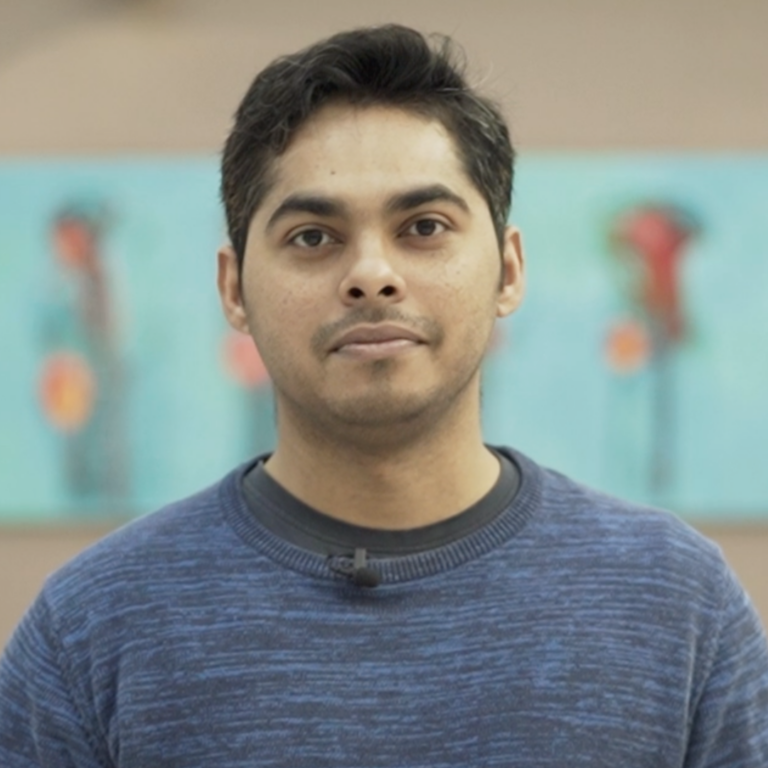
Mathew Kuttivadakkethil Avarachen
Project Coordinator and Postdoctoral Fellow – Department of Chemistry – Norwegian University of Science and Technology (NTNU) – Trondheim
Mathew is a marine biogeochemist and observational oceanographer holding a PhD from the Norwegian University of Science and Technology (NTNU) with a special research focus on multi-stressor impact studies on ecosystems. He is currently employed at NTNU as a Researcher. Furthermore, Matthew coordinates the Norad project – “BC5”, aimed at capacity building and networking between NTNU, the University of Ghana and the University of Dar es Salaam. He represents NTNU’s Svalbard Integrated Arctic Earth Observing System (SIOS) and is a board member of the UN Ocean Decade endorsed action “Sailing 4 Science” to improve citizen science by bridging the gap between researchers and citizen science groups.

Houda Beghoura
Postdoctoral Research Fellow – Geophysical Institute – University of Bergen (UiB) – Bjerknes Center for Climate Research (BCCR) – Bergen
Houda is a marine biogeochemist specialising in numerical modeling of physical-biogeochemical processes, focusing on ocean responses to natural and anthropogenic factors, and endorsing interdisciplinarity. She also has experience partnering with green energy producers to explore the development of artificial reoxygenation as a mitigator of global deoxygenation. Currently a postdoctoral fellow at the Geophysical Institute at UiB, alongside teaching, she is working on EU Horizon projects EuroGO-SHIP and OceanICU, employing statistical methods to assess accurate trends in acidification, eutrophication, and deoxygenation. Mindful of the role of science for society, she has been involved in science popularisation and was accredited as one of the ECR observers at the 2022 UN Ocean Conference to publicise the One Ocean Summit University’s Call for Action, initiative led by the Université de Bretagne Occidentale (UBO).
Leader outreach communication and media

Vilde Kloster Snekkevik
Researcher – Norwegian Institute for Water Research (NIVA) – Oslo
Vilde is a marine biologist, with a master’s degree from James Cook University in Australia. She has worked several years at the Australian Institute for Marine Science, where her main focus was on coral reefs adaptation to climate change, as well as microplastics related projects. She has several years of experience within the macro-and microplastic field, starting up and running her own non-profit organisation in 2016 where the focus was teaching children and adults the importance behind recycling plastic waste. Currently, she is working as a researcher at NIVA, where she is involved in various plastic pollution projects on both national and international levels.
Leader outreach communication and media
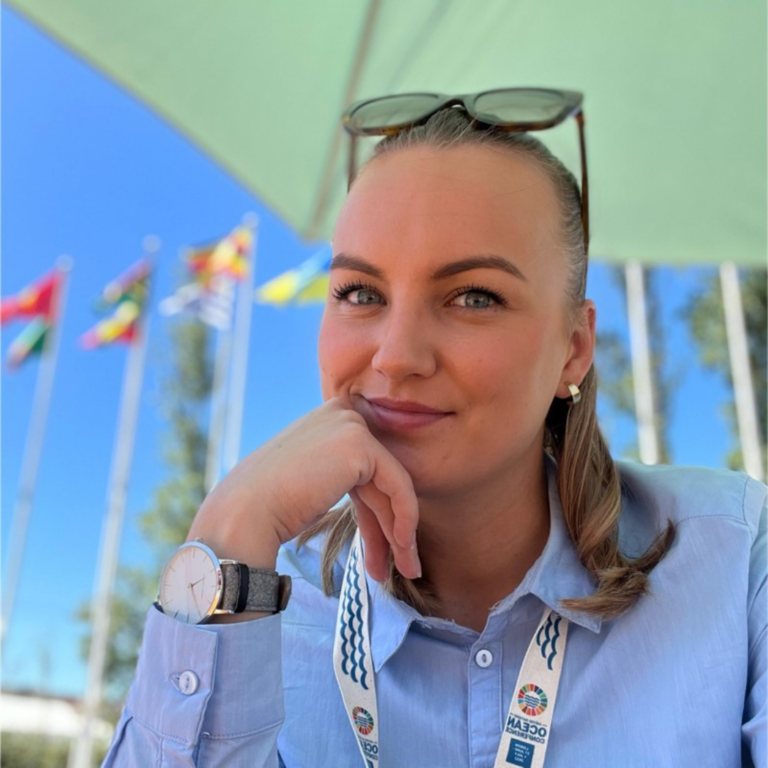
Else Kristine Welde
Communications Advisor – Centre for the Ocean and the Arctic – The Arctic University of Norway (UiT) – Tromsø
Else combines a background in journalism (BA) and human rights (MA) with extensive experience in strategic communication to advocate for sustainable ocean management. As a communications advisor at the Centre for the Ocean and the Arctic at UiT the Arctic University of Norway, she leads initiatives aligned with Sustainable Development Goal 14, focusing on interdisciplinary collaboration and innovative solutions. Else is the project lead for Blått kompass, a national ocean conference in Tromsø. Passionate about fostering education and outreach, she works to engage diverse audiences, empower early career professionals, and promote sustainable development to address Arctic and global ocean challenges.
Leader ECOP company nexus
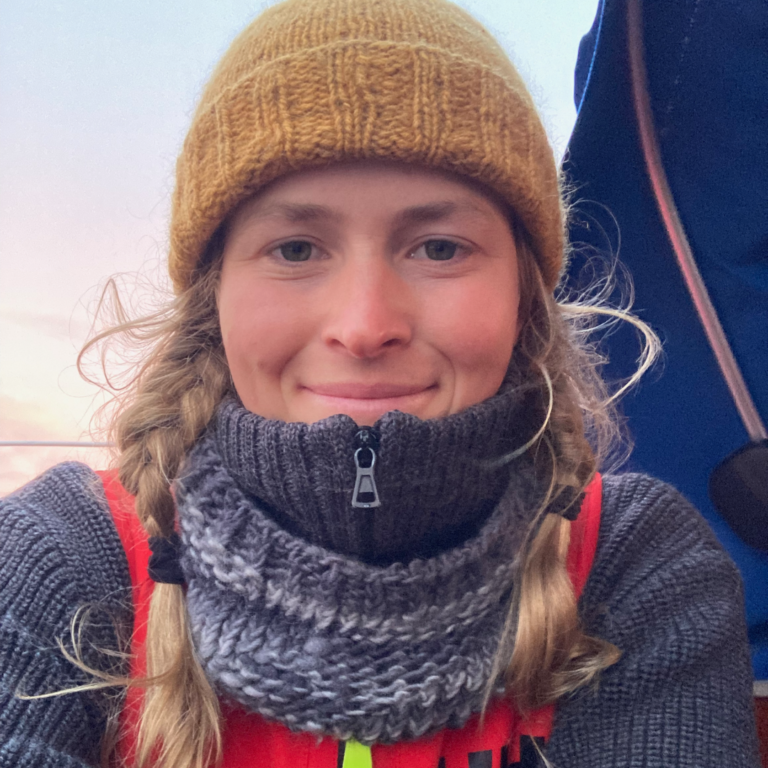
Hannah Marie Hoven
Market Developer Blue Bioeconomy – Kelpinor AS – Bodø/ Kiel, Germany
Hannah has a background in bioengineering and holds a master’s degree in Industrial Ecology from the Norwegian University of Science and Technology (NTNU), where she developed expertise in life cycle assessments, climate change mitigation, and marine ecology. For her thesis, she studied the climate change mitigation potential and carbon cycle impacts of macroalgae farming by analysing global data from an Earth System model. Her interest in connecting people and ideas to support a healthy marine environment drives her involvement with the ECOP Norway Steering Committee. Focusing on advancing the blue bioeconomy, Hannah works to enhance coastal ecosystems and strengthen the human connection with the ocean. In her free time, she enjoys exploring the sea on her sailboat.
Leader of scientific and environmental programs
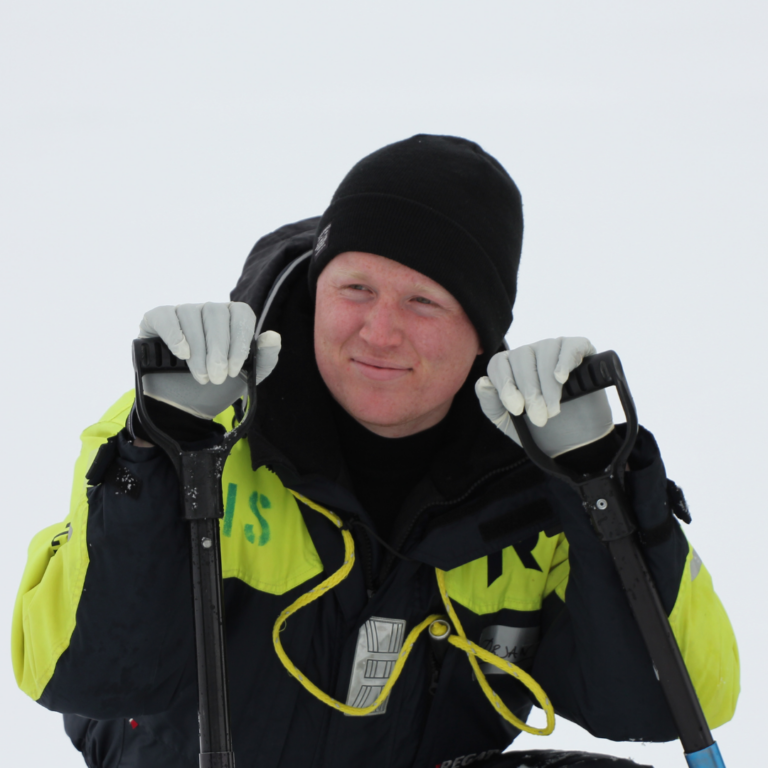
Ørjan Sørstrønen Vabø
Marine Biologist – Runde Research – Herøy, Møre & Romsdal
Ørjan has a master’s degree in marine biology from the University of Bergen, Norway. During his thesis and after, Ørjans work has been focused around mapping of benthic habitats and communities in Norwegian fjords. In 2022 he started working at Runde Research in Sunnmøre, a small private Research institute where he is participating in and leading regional and national research projects, while also doing consultancy work for municipalities and industry. At Runde, he has also been able to work within a variety of fields, including coastal ecology, marine mapping, environmental impact assessments, plankton ecology, fisheries, technology and oceanography. As a person who loves spending time outdoors hiking, fishing, etc., Sunnmøre is the perfect place to be situated.
Leader of scientific and environmental programs
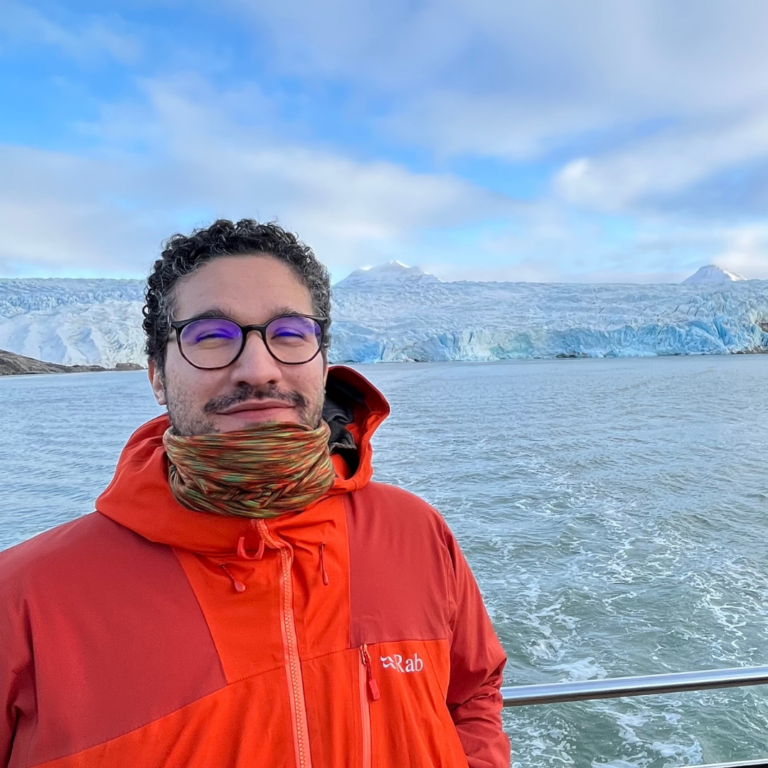
Juan Pardo
Researcher – Marine Biology section, Norwegian Institute for Water Research (NIVA) – Grimstad, PhD Candidate – Centre for Coastal Research (CCR) – University of Agder (UiA) – Kristiansand
Juan is a researcher with background in marine biology and coastal management, and experience in interdisciplinary research on animal-environment interactions, climate change and ecosystem dynamics. He is involved in national and international projects exploring the interplay between human-made infrastructure (e.g., offshore renewables, ports and harbours) and the environment, focusing on functional ecology, nature-based solutions and nature positive approaches. He also has experience in ocean and coastal literacy initiatives and outreach activities. He is a member of NANO (NF-POGO Alumni Network for Oceans) and has been involved in different networks and activities targeting ECRs in Ocean Sciences.
